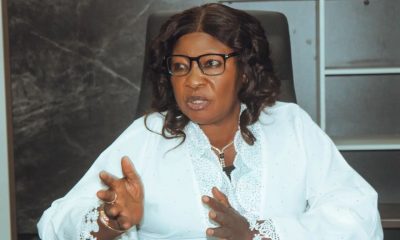The Federal Government has inaugurated a training programme for 120 young researchers as part of its efforts to strengthen cancer research in Nigeria.
The programme, known as the Strengthening Institutional Capacity for Cancer Research and Implementation (SINCCAR), aims to address the significant gaps in cancer research and promote evidence-based interventions nationwide.
The initiative was officially launched on Wednesday in Abuja, with Prof. Usman Aliyu, Director-General of the National Institute for Cancer Research and Treatment (NICRAT), underscoring the importance of the programme in preparing Nigeria for the development of new cancer interventions.
Speaking during the opening ceremony, Prof. Aliyu emphasized that the project was designed to empower young researchers in the field of oncology.
He noted that Nigeria was facing a shortage of oncology researchers, which hinders the country’s progress in cancer research and treatment.
He also highlighted the fact that African countries contribute less than one per cent to global clinical trials, which are essential for developing new cancer therapies.
“The interventions will range from prevention strategies and the design of effective screening tools to identifying young Nigerians with early-stage cancer. Research is also crucial in developing diagnostic tools and novel therapies tailored to the country’s most common cancers,” said Prof. Aliyu.
One key focus of the SINCCAR project is genomics, which Prof. Aliyu described as essential for developing new therapies and precision medicine specific to the types of cancer prevalent in Nigeria.
The project will be implemented nationwide across all six geopolitical zones, ensuring a broad and inclusive approach to cancer research.
Dr. Nwamaka Lasebikan, Director of Research and Innovation, stated that SINCCAR is a commitment to a new era of evidence-based decision-making in public health.
She emphasized that the goal is to ensure that research addresses local issues and contributes to the country’s social enterprise.
“We no longer want research to be conducted just for academic purposes or to fulfil promotion requirements.
ALSO READ : Technology enhances operations of NIPOST, Says Enugu postal manager
We want it to address local problems, contribute to the country’s social enterprise, and unlock the value chain within the research ecosystem,” Lasebikan said.
The 120 participants, selected from over 500 applicants nationwide, represent a multidisciplinary group, including basic science researchers, medical doctors, laboratory scientists, and experts in computational sciences.
The training will focus on key areas such as genomics, health outcomes research, and implementation science.
Following the training, participants will develop concept notes based on what they have learned and formulate research questions addressing national cancer-related issues. Successful candidates will also engage in a year-long mentorship programme to help implement their research projects and build on the knowledge they have gained.
Nana Lawal, an oncology nurse educator at National Hospital, Abuja, shared her excitement about the training. “Our main objective is to improve nursing care for cancer patients by focusing on preventive research and symptom management,” Lawal said.
At the end of the training, participants will gain strong qualitative and quantitative research skills, hands-on experience in data management and analysis, and other critical competencies that will contribute to improving cancer care in Nigeria.

 Entertainment1 week ago
Entertainment1 week ago
 Entertainment4 days ago
Entertainment4 days ago
 Comments and Issues1 week ago
Comments and Issues1 week ago
 Comments and Issues1 week ago
Comments and Issues1 week ago
 Business1 week ago
Business1 week ago
 Comments and Issues1 week ago
Comments and Issues1 week ago
 Health6 days ago
Health6 days ago
 Football6 days ago
Football6 days ago













